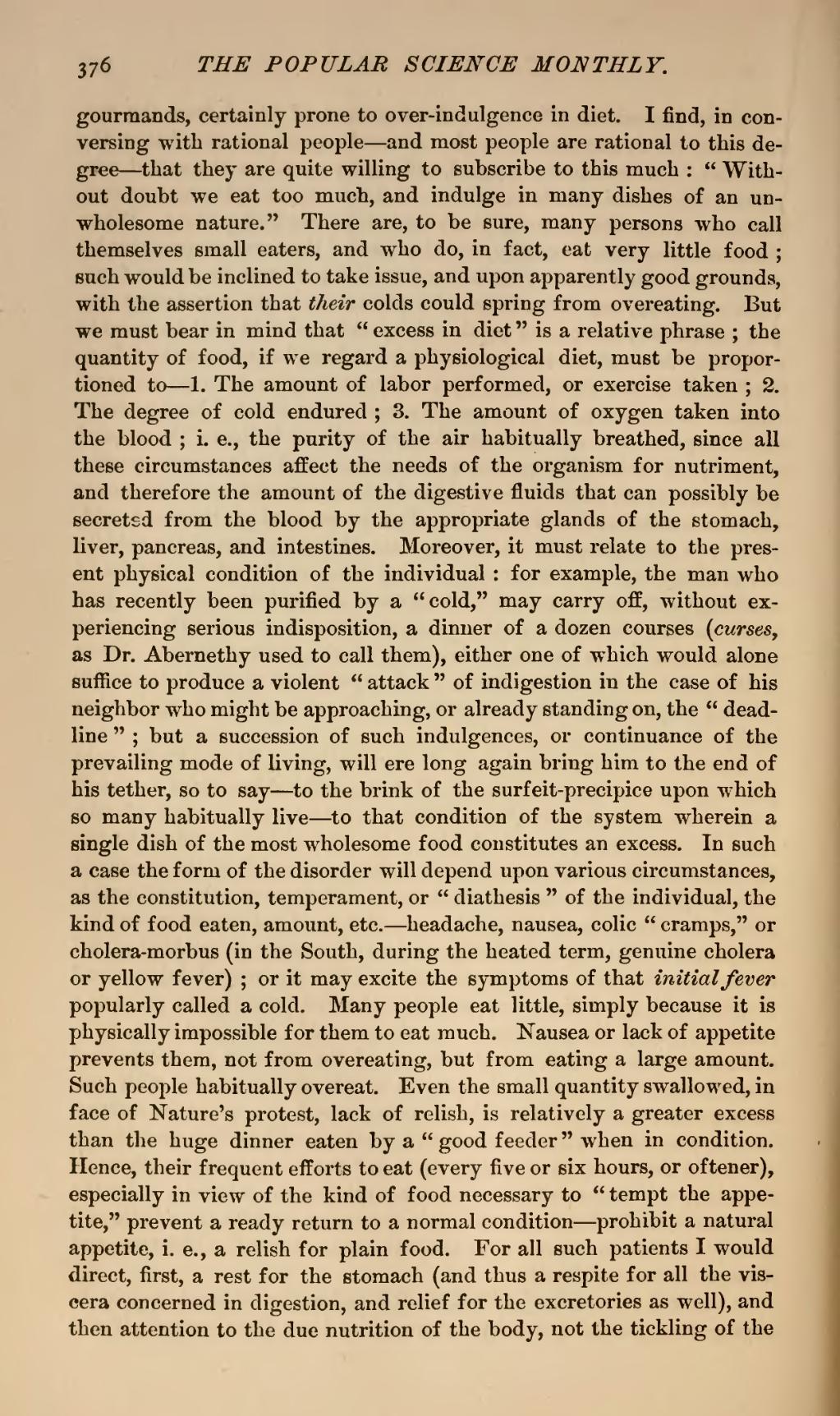gourmands, certainly prone to over-indulgence in diet. I find, in conversing with rational people—and most people are rational to this degree—that they are quite willing to subscribe to this much: "Without doubt we eat too much, and indulge in many dishes of an unwholesome nature." There are, to be sure, many persons who call themselves small eaters, and who do, in fact, eat very little food; such would be inclined to take issue, and upon apparently good grounds, with the assertion that their colds could spring from overeating. But we must bear in mind that "excess in diet" is a relative phrase; the quantity of food, if we regard a physiological diet, must be proportioned to—1. The amount of labor performed, or exercise taken; 2. The degree of cold endured; 3. The amount of oxygen taken into the blood; i. e., the purity of the air habitually breathed, since all these circumstances affect the needs of the organism for nutriment, and therefore the amount of the digestive fluids that can possibly be secreted from the blood by the appropriate glands of the stomach, liver, pancreas, and intestines. Moreover, it must relate to the present physical condition of the individual: for example, the man who has recently been purified by a "cold," may carry off, without experiencing serious indisposition, a dinner of a dozen courses (curses, as Dr. Abernethy used to call them), either one of which would alone suffice to produce a violent "attack" of indigestion in the case of his neighbor who might be approaching, or already standing on, the "deadline"; but a succession of such indulgences, or continuance of the prevailing mode of living, will ere long again bring him to the end of his tether, so to say—to the brink of the surfeit-precipice upon which so many habitually live—to that condition of the system wherein a single dish of the most wholesome food constitutes an excess. In such a case the form of the disorder will depend upon various circumstances, as the constitution, temperament, or "diathesis" of the individual, the kind of food eaten, amount, etc.—headache, nausea, colic "cramps," or cholera-morbus (in the South, during the heated term, genuine cholera or yellow fever); or it may excite the symptoms of that initial fever popularly called a cold. Many people eat little, simply because it is physically impossible for them to eat much. Nausea or lack of appetite prevents them, not from overeating, but from eating a large amount. Such people habitually overeat. Even the small quantity swallowed, in face of Nature's protest, lack of relish, is relatively a greater excess than the huge dinner eaten by a "good feeder" when in condition. Hence, their frequent efforts to eat (every five or six hours, or oftener), especially in view of the kind of food necessary to "tempt the appetite," prevent a ready return to a normal condition—prohibit a natural appetite, i. e., a relish for plain food. For all such patients I would direct, first, a rest for the stomach (and thus a respite for all the viscera concerned in digestion, and relief for the excretories as well), and then attention to the due nutrition of the body, not the tickling of the
Page:Popular Science Monthly Volume 24.djvu/390
This page has been validated.
376
THE POPULAR SCIENCE MONTHLY.
